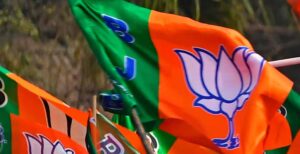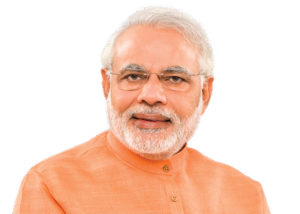Examining School Education in India and Future Government Policies

A Critical Examination of School Education in India and Future Government Policies: Navigating the Intersection
Analyzing the State of School Education in India and Prospective Government Policies: Navigating the Convergence
 In the sprawling tapestry of India’s educational landscape, school education stands as the foundational cornerstone, shaping the future of millions of young minds. As we stand at the cusp of a new era, it becomes imperative to scrutinize the current scenario of school education in India and evaluate the efficacy of existing government policies. This editorial aims to delve into the various facets of the educational system, offering a humanly perspective on the challenges faced and proposing recommendations for future policy considerations.
In the sprawling tapestry of India’s educational landscape, school education stands as the foundational cornerstone, shaping the future of millions of young minds. As we stand at the cusp of a new era, it becomes imperative to scrutinize the current scenario of school education in India and evaluate the efficacy of existing government policies. This editorial aims to delve into the various facets of the educational system, offering a humanly perspective on the challenges faced and proposing recommendations for future policy considerations.
India’s school education system is a vast and diverse ecosystem, reflecting the socio-economic and cultural diversity of the nation. However, beneath this diversity lies a tapestry woven with both strengths and challenges. The Right to Education Act (RTE) of 2009 marked a significant milestone by making education a fundamental right for children aged 6 to 14, aiming to bridge gaps in access and quality.
However, despite commendable efforts, the ground reality remains complex. Access to quality education is uneven, with rural areas facing infrastructural and teacher shortages, while urban areas grapple with an overburdened system. The digital divide, exacerbated by the recent global events, has further highlighted disparities in learning opportunities, making it imperative to reevaluate the approach to education.
One of the pillars of a robust education system is the quality of its educators. In India, teachers play a pivotal role in shaping the minds of the future generation. However, the challenges faced by teachers are multifaceted. Insufficient training, outdated pedagogical methods, and inadequate support systems hinder their ability to provide holistic education.
Government policies need to focus on comprehensive teacher training programs, incorporating modern teaching methodologies and addressing the evolving needs of the 21st-century learner. Ongoing professional development should be emphasized to keep educators abreast of the latest educational trends, fostering an environment of continuous improvement.
The advent of the digital age has revolutionized education globally, presenting both opportunities and challenges. While technology can enhance learning experiences, its effective integration into the Indian school system remains uneven. Rural schools, in particular, face infrastructural limitations, hindering access to digital resources and online learning platforms.
To bridge this gap, the government must prioritize investments in infrastructure, ensuring that every school, irrespective of its location, is equipped with the necessary facilities for technology-enabled education. Additionally, efforts should be directed towards training teachers to leverage technology effectively, transforming classrooms into dynamic spaces of learning.
The current curriculum framework in India is often criticized for its rigidity and outdated content. A more dynamic and responsive curriculum is essential to prepare students for the challenges of the contemporary world. The emphasis should shift from rote memorization to fostering critical thinking, creativity, and problem-solving skills.
Incorporating vocational training and skill development programs within the school curriculum is crucial. This not only equips students with practical skills but also aligns education with the evolving needs of the job market. Government policies should encourage partnerships with industries to design curriculum modules that bridge the gap between education and employability.
In the pursuit of an inclusive education system, addressing the needs of differently-abled students is paramount. While there have been positive strides, challenges persist, ranging from infrastructural barriers to a lack of trained personnel. The government must intensify its efforts to create an environment that caters to the diverse needs of all learners.
Special educators need to be deployed across schools, and infrastructural modifications should be made to ensure physical accessibility. Sensitizing teachers and students about the importance of inclusivity fosters a culture of understanding and acceptance. Additionally, curricular adaptations and assessment modifications can be explored to provide a level playing field for all students.
The current examination-oriented culture in India has often been criticized for promoting rote learning and stifling creativity. The undue emphasis on board examinations as the sole measure of a student’s potential adds to the pressure and anxiety faced by young minds.
Government policies should contemplate a holistic approach to assessment, incorporating continuous and comprehensive evaluation methods. Emphasis on project-based assessments, practical examinations, and skill-based evaluations can provide a more accurate reflection of a student’s capabilities. Reducing the reliance on high-stakes examinations can contribute to a more balanced and stress-free learning environment.
The role of parents and the local community in a child’s education cannot be overstated. However, there is often a disconnect between the school and the community it serves. Government policies should encourage and facilitate increased parental involvement through awareness campaigns, workshops, and collaborative initiatives.
Community engagement programs can enhance the overall educational experience by fostering a sense of collective responsibility. Schools should be viewed as community centers, serving not only as educational institutions but also as hubs for cultural exchange, skill development, and community support.
As we chart a course for the future of school education in India, it is imperative to envision a system that is dynamic, inclusive, and responsive to the evolving needs of the 21st century. The following recommendations outline potential policy directions for the government to consider:
Investment in Infrastructure: A robust education system necessitates substantial investments in infrastructure, particularly in rural and underserved areas. Adequate classrooms, libraries, laboratories, and digital infrastructure are essential components that should be prioritized.
Teacher Training and Professional Development: Establishing a comprehensive and ongoing teacher training framework is crucial. Specialized training programs should be designed to enhance pedagogical skills, incorporate technology in teaching, and address the socio-emotional needs of students.
Curriculum Overhaul: A flexible and contemporary curriculum that promotes critical thinking, creativity, and practical skills is essential. Regular reviews and updates should be undertaken to ensure relevance to the changing global landscape.
Inclusive Education: Policies should focus on creating an inclusive environment for students with diverse needs. This involves the deployment of special educators, infrastructural modifications, and awareness programs to promote understanding and acceptance among students and teachers.
Skill Development and Vocational Training: Integrate skill development and vocational training programs within the school curriculum. Collaborate with industries to design courses that align with market demands, enhancing students’ employability.
Assessment Reforms: Move towards a holistic assessment system that evaluates a student’s overall development. Reducing the emphasis on high-stakes examinations and incorporating varied assessment methods can contribute to a more well-rounded evaluation process.
Community Involvement: Implement initiatives to enhance parental and community involvement in the educational process. Schools should serve as community hubs, fostering collaboration and support between educators, parents, and the local community.
In navigating the complex landscape of school education in India, it is crucial to adopt a holistic and human-centric approach. The challenges faced by the system are vast, but with thoughtful policies and concerted efforts, India can pave the way for an inclusive, empowering, and forward-looking educational system.
As we stand at this crossroads, the decisions made today will shape the trajectory of the nation’s future. Let us collectively strive for a school education system that not only imparts knowledge but also nurtures the diverse talents and potential inherent in every child, laying the foundation for a brighter and more equitable future for India.






